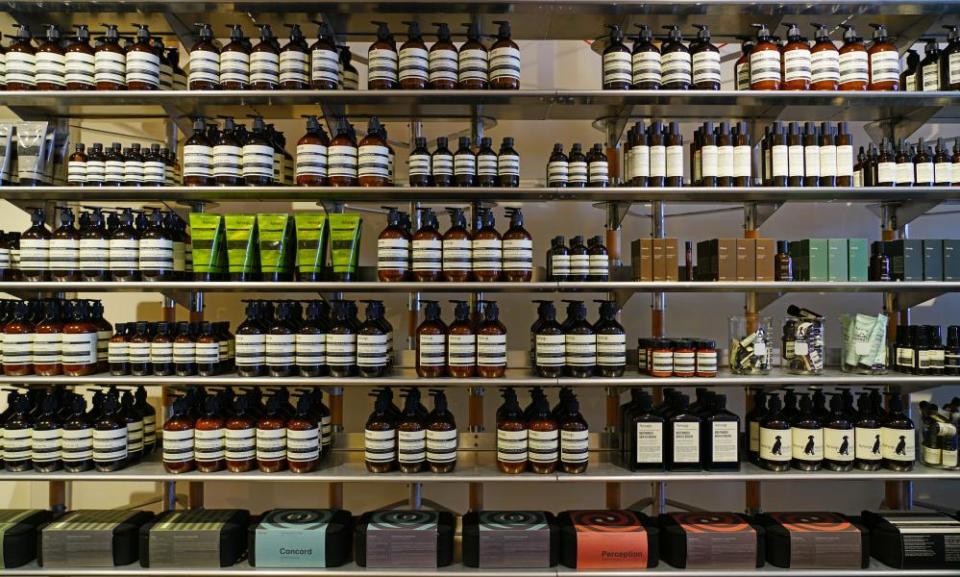Aesop reported target in $2bn bidding war between French groups

Aesop, an Australian luxury cosmetics, shampoo and bodycare brand, is said to be at the centre of a $2bn (£1.6bn) bidding war between French multinationals LVMH and L’Oréal.
LVMH, the luxury goods empire controlled the world’s richest person, Bernard Arnault; L’Oréal, the world’s largest cosmetics company; and the Japanese makeup and fragrance brand Shiseido Co are weighing up bids to buy a stake in Aesop, according to Bloomberg.
Aesop, which was founded by the Melbourne hairdresser Dennis Paphitis in 1987, has been majority-owned by the Brazilian cosmetics multinational Natura for more than a decade.
Related: JD Sports hit by cyber-attack that leaked 10m customers’ data
Natura, which also owns The Body Shop, has appointed Bank of America and Morgan Stanley to explore the possibility of selling a stake in Aesop.
LVMH declined to comment, while Natura, L’Oréal and Shiseido did not respond to requests.
Aesop, which is sold from 320 shops across 25 countries, is popular in expensive restaurants bathrooms and in aspirational homes. Its products do not come cheap, with a 500ml bottle of hand wash retailing at £31 or a 100ml bottle of bergamot rind shampoo for £13.
Paphitis began the company after blending essential oils into his hair products.
Originally called Emeis (Greek for “us”), the company was renamed Aesop in 1989. On day one, Paphitis hired an assistant, Suzanne Santos, who proved vital to the business’s development.
He started with just four products – the signature Aromatique handwash – but has expanded to nearly 100. Paphitis is now an adviser but Santos remains chief operating officer.
Aesop’s internal processes are lore. The now defunct fashion and shopping website Racked reported in 2017 that office staff had to use black ballpoint pens and were not allowed to eat lunch at their desks. Everything from toilet paper to colours on graphs on slideshows is prescribed.
“We labour over seemingly inane decisions,” Paphitis once told the Sydney Morning Herald. “We work to make things appear effortless and as though they just happen. But actually there’s a great deal of energy involved.”

